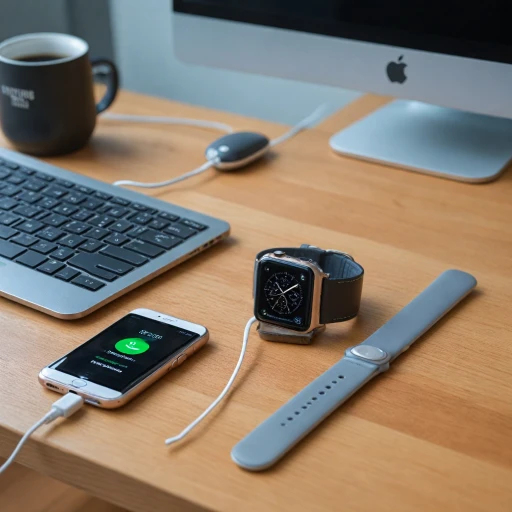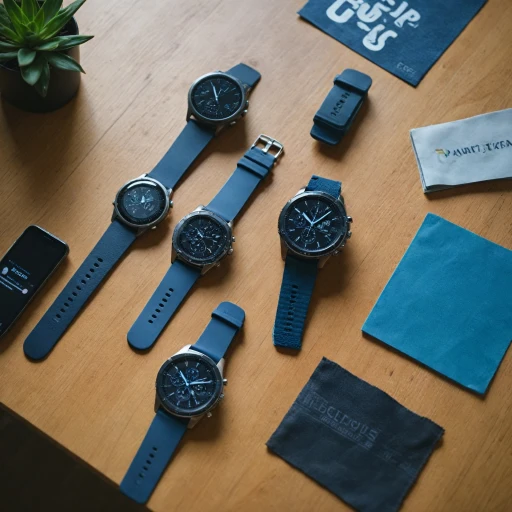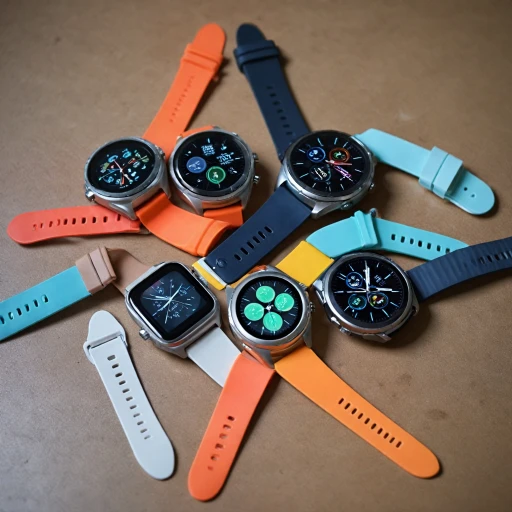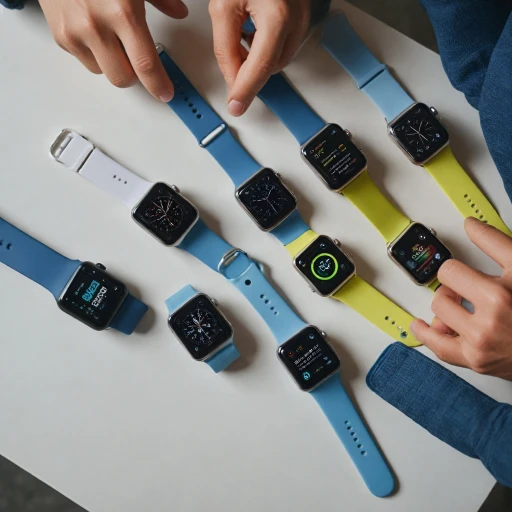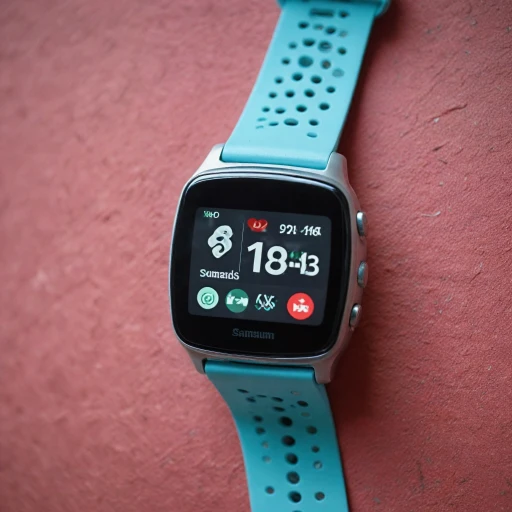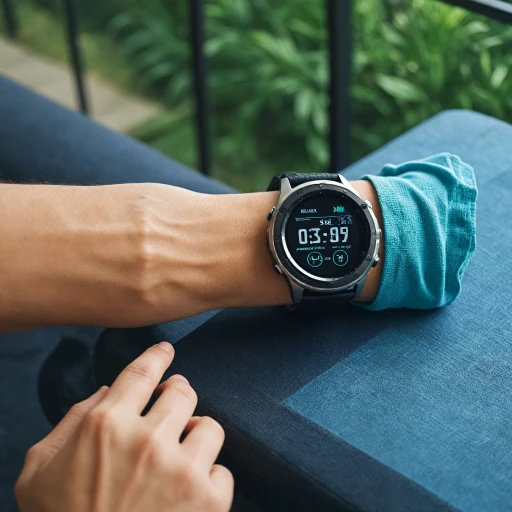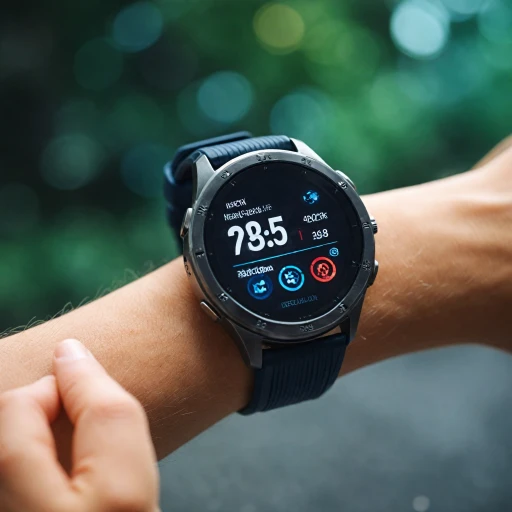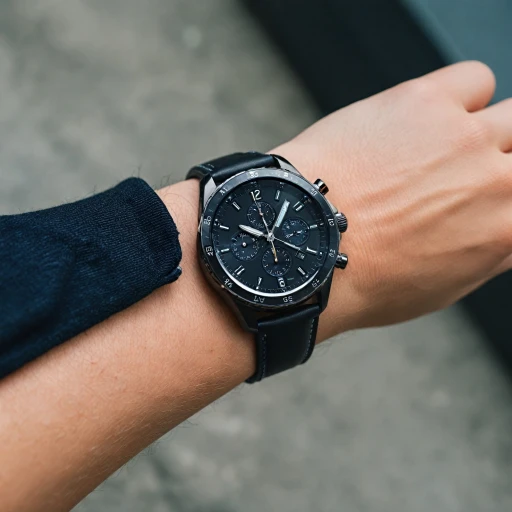
Understanding Fitness Trackers and Their Benefits
The Role of Fitness Trackers in Modern Health
Smartwatches and fitness trackers have transformed the way individuals monitor and improve their health. These wearables integrate advanced tech features such as heart rate monitoring, GPS for location tracking, and analysis of sleep patterns. The ability to continuously monitor various health metrics makes fitness trackers invaluable for those seeking to enhance their physical well-being. Notably, fitness trackers like the Garmin Forerunner and Fitbit Charge series offer robust functionalities. They do more than just track steps or calories burned - these devices provide insights into your heart rate variability, improving the depth of health tracking you get. This data can inform better lifestyle choices and even serve as a proactive measure for those monitoring chronic conditions. Discover how wearable technology can support health management. Moreover, users can benefit from the multifunctionality of these devices as they often feature a clear display, offering vital statistics at a glance. The battery life of some models ensures that you have a reliable companion without the hassles of frequent recharging. Smartwatches like the Apple Watch and Garmin Instinct add a distinct smart value by connecting with other devices. Choosing the right fitness tracker will depend on the features that align with your goals and lifestyles, such as water resistance for swimmers or GPS tracking for runners. With an array of choices, comparing options like the Pixel Watch or Samsung Galaxy will help you find a balance between style, function, and price.Key Features to Look for in a Fitness Tracker
Essential Qualities to Consider
When shopping for a fitness tracker, you should focus on several key features to find your perfect match. Consider options like heart rate monitoring, GPS tracking, and water resistance to cater to your daily activities and personal health goals.
- Heart Rate Monitor: This feature is crucial for tracking your cardiovascular health during workouts. Whether you're opting for a Fitbit Inspire or Apple Watch, accurate heart monitoring can help you reach your fitness goals by providing real-time data.
- GPS Functionality: If outdoor activities are part of your routine, a tracker with GPS can enhance your experience by mapping your runs and hikes. Devices like the Garmin Forerunner are renowned for their precise GPS capabilities.
- Battery Life: Consider how often you'll need to charge your device. Some fitness trackers offer extended battery life, allowing you to track your health metrics for days without interruption.
- Display Clarity: A larger, high-resolution display can make it easier to view your stats on the fly. Whether it's the vivid screen of the Pixel Watch or the Samsung Galaxy's user-friendly interface, prioritize readability and simplicity.
- Water Resistance: For swimmers or those who prefer water-based workouts, selecting a device with water resistance is non-negotiable. Brands like Garmin Instinct are known for their durable and waterproof designs.
Tech Integration and Smart Features
Fitness trackers often come equipped with smart features that integrate seamlessly with other devices. Whether you're looking to enhance your health regimen with sleep tracking, or connect with platforms such as Google Fit, these smart additions can significantly enhance your experience.
- Sleep Tracking: Understanding your sleep patterns is essential for achieving optimal health. Devices like the Fitbit Charge offer precise sleep monitoring, helping you make necessary adjustments for better rest.
- Smart Device Compatibility: Many fitness trackers synch effortlessly with smartphones and other gadgets, allowing you to add apps and receive notifications. Consider the ease of connection and the ecosystem you're invested in, such as the Apple or Google product range.
- Comprehensive Health Metrics: Fitness trackers have evolved to encompass a wide array of health data, from heart rate variability to stress level analysis. This all-inclusive approach provides a holistic view of your wellness journey.
Now that you understand the essential qualities and features to consider, you're ready to explore brand options that align with your specifications and budget preferences.
Comparing Popular Fitness Tracker Brands
Exploring Top Fitness Tracker Brands
When it comes to choosing a fitness tracker that suits your workout regimen and daily lifestyle, it's crucial to understand what different brands offer. Popular names like Garmin, Fitbit, and Apple continue to top lists, each with unique features and pricing options.
Garmin is renowned for its top-notch GPS capabilities and precise heart rate monitoring, making it ideal for outdoor enthusiasts and athletes. The Garmin Forerunner and Garmin Instinct series offer robust features, including water resistance and long battery life, which is perfect for those extended training sessions. If you’re considering a watch that can handle rugged environments, Garmin devices are a formidable companion.
On the other hand, Fitbit devices like the Fitbit Charge and Fitbit Inspire are celebrated for their user-friendly design and comprehensive health analytics. These smart wearables track sleep, steps, calories burned, and more, making them great all-rounders for everyday fitness enthusiasts. Star ratings across various platforms are consistently high, making Fitbit a popular choice for many.
For those in the market for advanced integrations and premium displays, the Apple Watch and Samsung Galaxy are top contenders. With crisp display size and seamless integration into their respective ecosystems, these devices offer a full-fledged smart watch experience beyond fitness. If your daily routine involves using multiple smart devices, you can't go wrong with an Apple Watch.
When comparing fitness trackers, consider your daily activities and specific features that matter to you, such as GPS, display clarity, or heart rate monitoring. Additionally, think about where you plan to shop; many brands offer free shipping when you add to cart. Whether you prioritize a rugged outdoor watch or a sleek everyday fitness companion, there's something for everyone in the best fitness tracker market.
How to Choose a Fitness Tracker Based on Your Lifestyle
Aligning Features with Your Routine
When selecting a fitness tracker, aligning the device's features with your lifestyle is essential for maximizing its effectiveness. Here are some crucial factors to consider that will help you find the perfect fit for your daily routine:
- Activity Level: Determine which activities you engage in most frequently. A runner might benefit from a Garmin Forerunner's advanced GPS tracking, while a swimmer could prioritize water resistance features. Consider how versatile you need the tracker to be across diverse fitness activities.
- Health Metrics: For those focused on health tracking, options like continuous heart rate monitoring are invaluable. Devices like Fitbit Inspire and Samsung Galaxy offer integrated heart sensors that provide insights into your daily heart conditions. They can also track other health metrics such as sleep, offering a holistic view of your health data.
- Budget Considerations: When considering your fitness tracker, price and features often go hand in hand. An Apple Watch might offer a comprehensive suite of tools available at a premium price, while a Fitbit Charge might provide essential features for those on a smaller budget.
- Smart Features: Determine the level of connectivity you desire. Some might prefer a smartwatch like the Google Pixel Watch with smart features for calls and messages, whereas others might focus solely on activity tracking.
- Design Preferences: The watch's display size and style can influence your choice, especially if you plan to wear it all day. Consider models with customizable displays, such as the Garmin Instinct, which offers rugged designs for outdoor activities.
- Battery Life: Longer battery life can be crucial if your schedule involves extended periods without access to charging. Compare the battery life of different models to ensure they meet your daily needs without constant recharging.
Each person has unique needs when it comes to fitness tracking. Whether you're a casual jogger or an eager gym-goer, evaluating these factors will guide you toward the fitness tracker that best complements your lifestyle. Remember, a perfectly matched fitness companion can significantly enhance your motivation and productivity, supporting your journey toward better health and fitness outcomes.
Integrating Fitness Trackers with Other Smart Devices
Seamlessly Connecting Your Fitness Tracker with Other Smart Devices
When it comes to maximizing the capabilities of your fitness tracker, it's essential to integrate it with other smart devices for enhanced functionality and convenience. Many fitness trackers, like the popular Fitbit Charge and Garmin Forerunner, are designed to work with various smart devices, providing a comprehensive health monitoring experience.- Connection to Smartphones: Most fitness trackers can sync with smartphones via Bluetooth. This connection allows for real-time notifications on your smartwatch, such as calls, messages, and app alerts, directly on your wrist, effectively turning your tracker into a multifunctional smart watch. Depending on your choice between Android and iOS, options like the Samsung Galaxy and Apple Watch offer different levels of integration and user experience.
- Health and Fitness Apps: Platforms such as Google Fit and other health apps can often collect data from fitness trackers to help you keep track of your activity levels, heart rate, and sleep patterns. Integrating these apps with your tracker allows for a unified display of your health data, making it easier to monitor overall wellness.
- Integration with Other Smart Home Devices: If you're invested in a smart home ecosystem, some fitness trackers can interact with your home devices. Imagine controlling your smart thermostat or lighting directly from your wrist using a tracker with GPS and smart functionality.
- Accessing Additional Features: Some smart watches, like those with GPS and water resistance, offer specialty features that can be tailored to your specific fitness needs. Whether you're interested in the Garmin Instinct for outdoor adventures or the Fitbit Inspire for its sleek design and wrist-based tracking, many options cater to different lifestyles and preferences.
- Data Management and Storage: Using a smart watch with sufficient storage lets you track and save extensive health data over time, providing insights into long-term health trends. This is crucial for both casual users and fitness pros who need detailed records of their progress.
Maximizing the Use of Your Fitness Tracker
Enhancing Your Fitness Journey with Technology
Maximizing the use of your fitness tracker is essential for reaching your health goals effectively. With features such as heart rate monitoring, GPS, and sleep tracking, today's fitness trackers, like the Garmin Forerunner, Fitbit Charge, and Samsung Galaxy watches, are more advanced than ever.- Customize Notifications and Reminders: Many smartwatches offer customizable notifications to keep you active throughout the day, such as reminders to move if you've been sitting too long.
- Use Health Metrics Efficiently: Monitor your progress with wrist-based heart rate data and sleep patterns to gain insights into your health. For instance, utilizing the sleep tracking feature can help you understand your sleep quality better.
- Leverage Built-in GPS: Utilizing GPS features allows you to track outdoor activities more accurately, providing data on distance, pace, and elevation. The Garmin Instinct is well-regarded for its comprehensive GPS tracking capabilities.
- Sync Data Across Devices: Integrate your fitness tracker with other devices. Whether you're using an Apple Watch or a Pixel Watch compatible device, syncing with smartphones enhances accessibility and allows for a more seamless experience.
Optimize Features for Better Results
- Battery Management: To increase battery life, adjust settings based on usage priorities. Reduce display size brightness or turn off unnecessary alerts to prolong wear.
- Water Resistance Considerations: If your fitness routine includes swimming or water-based activities, ensure your fitness tracker offers the necessary water resistance rating for peace of mind.
- Explore App Features: Fitness apps, whether from Fitbit Inspire or Google, offer dashboards to visualize progress. Some models even support 'quick view' features to easily glance at your day's activity.



